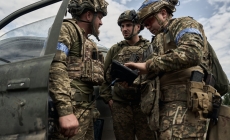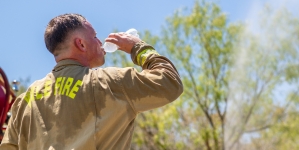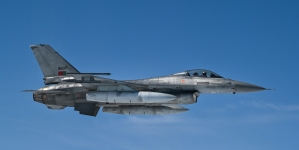-
No More NATO ‘Red Lines’ in Ukraine, Macron Ally Urges - May 23, 2024
-
A portion of Mulholland Drive, damaged by mudslides in winter storms, reopens - May 26, 2024
-
‘Maybe You Don’t Want to Win’ - May 26, 2024
-
Donald Trump Putting Law Enforcement in Danger: Attorney - May 26, 2024
-
Avoid the waters of these 5 L.A. County beaches this holiday weekend, public health officials say - May 26, 2024
-
Bawdy Comedy ‘Anora’ Wins Palme d’Or at Cannes Film Festival - May 26, 2024
-
Map Shows Heat Wave Zone Spread Into Five New States - May 26, 2024
-
Azusa police arrest suspected slingshot-wielding vandal - May 25, 2024
-
Donald Trump Hammers Judge Ahead of Jury Instructions - May 25, 2024
-
Sometimes U.S. and U.K. Politics Seem in Lock Step. Not This Year. - May 25, 2024
No More NATO ‘Red Lines’ in Ukraine, Macron Ally Urges
A spokesperson for French President Emmanuel Macron’s Renaissance party has told Newsweek that NATO states should stop “negotiating” with themselves over the extent of allied commitment in Ukraine.
With Russian troops on the offensive across the front and President Vladimir Putin seemingly uninterested in any offramp, Benjamin Haddad—a member of Parliament representing Macron’s party and considered a leading voice on French foreign affairs—said the Western bloc should be looking to “turn the tables” on the Kremlin.
“We should stop negotiating with ourselves and putting red lines and limits on ourselves,” Haddad said in an interview on the sidelines of the Lennart Meri Conference in Tallinn, Estonia, on Friday. “We have an adversary—Russia—that has put no such limit on its behavior or rhetoric.”
Newsweek has contacted the Kremlin by email to request comment.
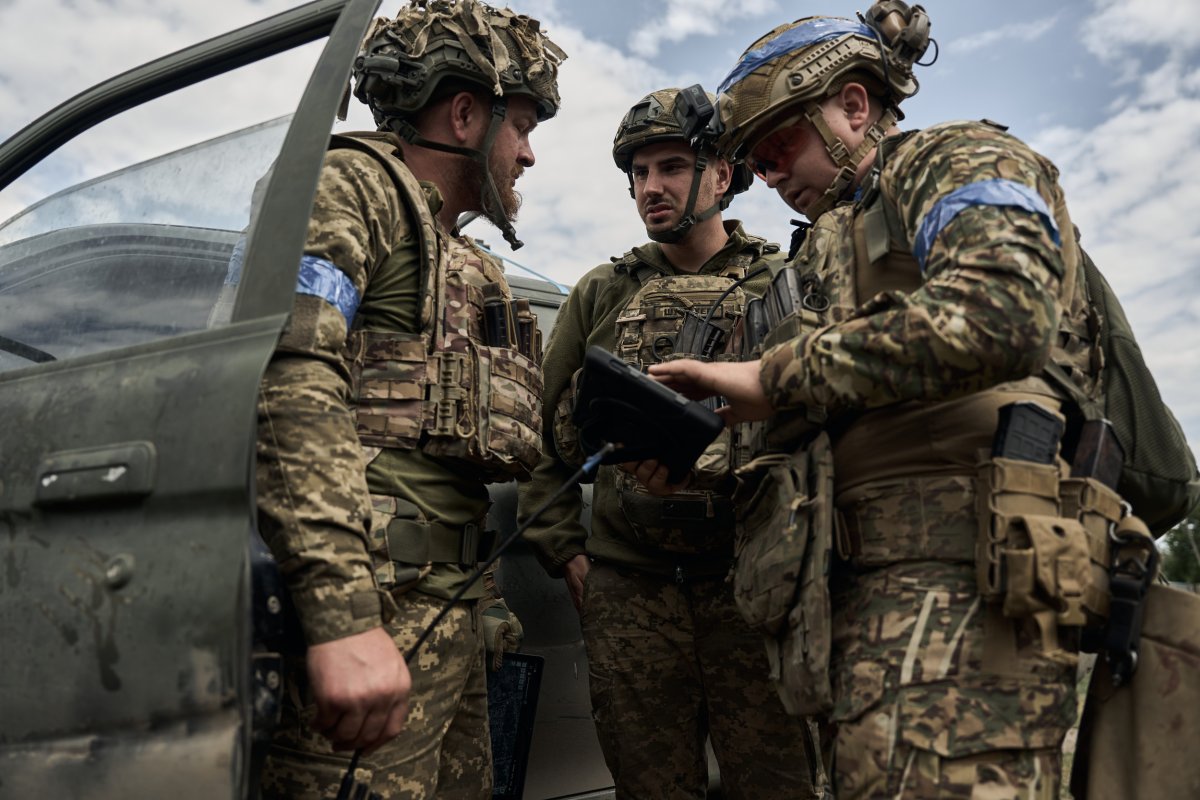
Kostiantyn Liberov/Libkos/Getty Images
Boots on the Ground
“We’ve wasted so much time on the kinds of ammunition or weaponry that we’ve been sending,” Haddad added. “Imagine if early on in the war, or if during the counteroffensive, we had given Ukraine everything they needed in terms of long-range missiles, tanks, airplanes; what difference that could have made on the ground.”
“We need to turn the tables on Putin and not exclude anything, and tell him that time is not playing in his favor, that we’re ready to not only increase our support but also increase the nature of our support.”
Paris has been at the forefront of efforts to revive NATO’s “strategic ambiguity” with regards to its involvement in Ukraine, Macron’s government declining to release details on what military support it is sending to Kyiv and the president suggesting the eventual deployment of a multinational noncombat force inside the country.
France has supplied Storm Shadow/SCALP cruise missiles used to hit high-value Russian targets in occupied Ukrainian territory, and German Chancellor Olaf Scholz appeared to reveal that French forces are even helping their Ukrainian partners conduct such attacks. Macron has said it would be “wrong to rule out” any action.
“We spend too much time being worried about escalation where when Russia is the country that has been escalating,” Haddad said, explaining Macron’s approach, which has won support from several European Union (EU) and NATO nations including some along Russian frontiers.
“It would have direct security consequences on the future of the EU if Russia were to win,” Haddad said. “We need to think creatively about the nature we do things.”
Troop deployment is one of the options under discussion, despite opposition from the U.S. and Germany. Another is the use of NATO’s air defense umbrella to protect areas of western Ukraine from Russian missiles and drones, a proposal Haddad said is “certainly something that’s worth discussing.”
Relocating maintenance operations for Western weapons inside Ukraine would also take some strain off Kyiv’s sprawling logistical chain, Haddad said, noting the example of CAESAR self-propelled howitzers for which training takes place in France and repair takes place in nations neighboring Ukraine. “If you could locate that entire process from training to maintenance in Ukraine, that would be a huge gain in terms of time and resources,” he said.
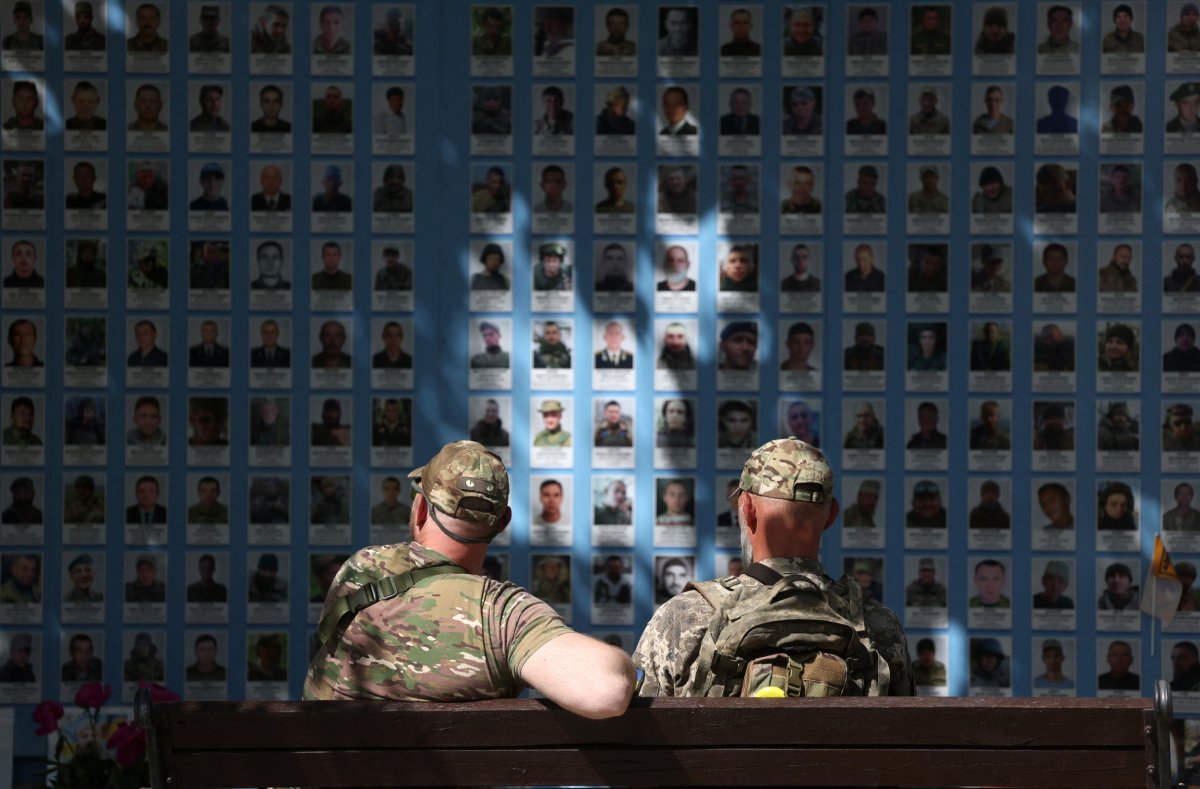
ANATOLII STEPANOV/AFP via Getty Images
Momentum is “clearly” building for deeper NATO commitments inside Ukraine, Haddad said. “I think there is momentum, but there’s still resistance, I think, to overcome. It’s important to have coordinated decisions, but clearly, we’ve seen a conversation start in the region.”
Russia has consistently warned its Western adversaries against providing any kind of aid to Ukraine while simultaneously framing its war on Kyiv as a direct confrontation with the U.S.-led “collective West.”
This month, in response to a Ukrainian petition urging NATO to deploy forces, Kremlin spokesperson Dmitry Peskov said: “We have repeatedly said that direct intervention on the ground in this conflict by the military of NATO countries potentially carries enormous danger, so we consider this an extremely challenging provocation, nothing less, and, of course, we are watching this very carefully.”
‘Step Up’ Europe
The EU and the U.S. have been “lagging in our response” to Russia’s invasion, Haddad said, with the recent partisan gridlock on $61 billion in American aid for Kyiv causing particular concern across Europe ahead of what is expected to be a tight 2024 presidential election.
“We’ve had good news coming out in United States, after months of a blockaded Congress,” Haddad said. “I think that will be critical in the next few months. I think at the European level, it’s absolutely urgent to ramp up production of ammunition, of weaponry, of coordination between allies to be able to help Ukraine in the long run.”
“It’s also about signaling clearly to Putin that time is not playing in his favor, and that actually it’s the other way around,” Haddad continued. “I think Putin thinks that time is in his favor. That, of course, explains a lot of his reluctance to even negotiate.”
Macron and his allies have been urging European leaders to reduce reliance on Washington, D.C, GOP skepticism on Kyiv and President Joe Biden’s perceived hesitance in Ukraine perhaps acting as a shot in the arm for the president’s long-held ambitions of increased European strategic autonomy.
“The challenge for us, beyond just the short term, is how can we help Ukraine to defend itself in the long term while at the same time defending ourselves and increasing our own ambition at the European level,” Haddad said.
Among the proposals to that end is the issuing of defense Eurobonds worth more than $100 billion to arm Ukraine and upgrade European armories. Estonian Prime Minister Kaja Kallas told Bloomberg of the idea in February: “We are in a place where we need to invest more and [explore] what we can do together, as the bonds that would be issued by separate countries individually are too small to scale. Eurobonds could have a much bigger impact.”
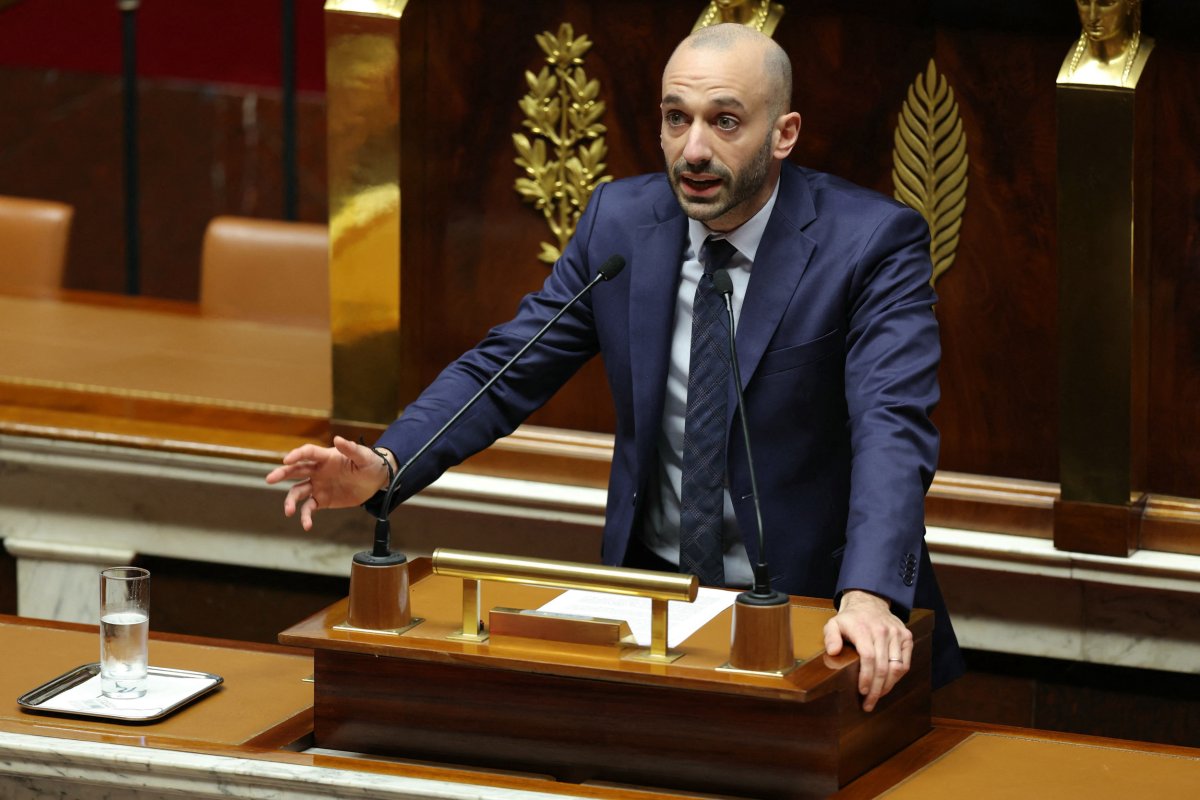
THOMAS SAMSON/AFP via Getty Images
This year could prove a decisive one for Ukraine, with Russian forces on the offensive and pivotal elections taking place in the U.S. and the EU. The predicted far-right surge in the European Parliament poll and the potential return of former President Donald Trump’s “America First” foreign policy transactionalism are casting dark clouds over Europe.
“There are a lot of concerns about what will come out of the U.S. election,” Haddad said. “Even if Biden is reelected, will we have other congressional decisions that allow aid to Ukraine? I’m not sure. We need to work under the assumption that this is the last time.”
If that is the case, Haddad continued, Europe will face a defining moment. “Do you say we’re done? Or do you say—and this is what would advocate—that Europeans need to step up?”
“That’s what Macron has been telling his European partners as well. Even if tomorrow we don’t have the U.S., then we need to be able to step up.”
Uncommon Knowledge
Newsweek is committed to challenging conventional wisdom and finding connections in the search for common ground.
Newsweek is committed to challenging conventional wisdom and finding connections in the search for common ground.
Source link


